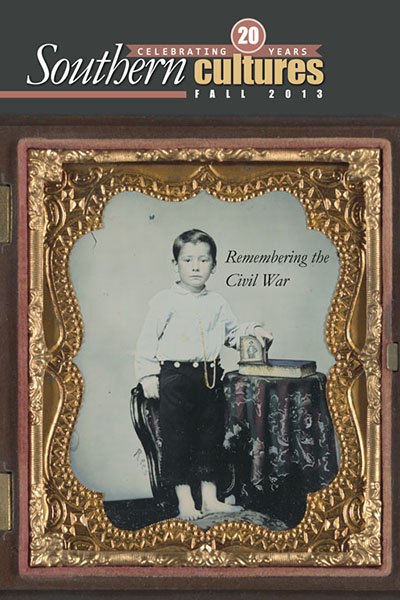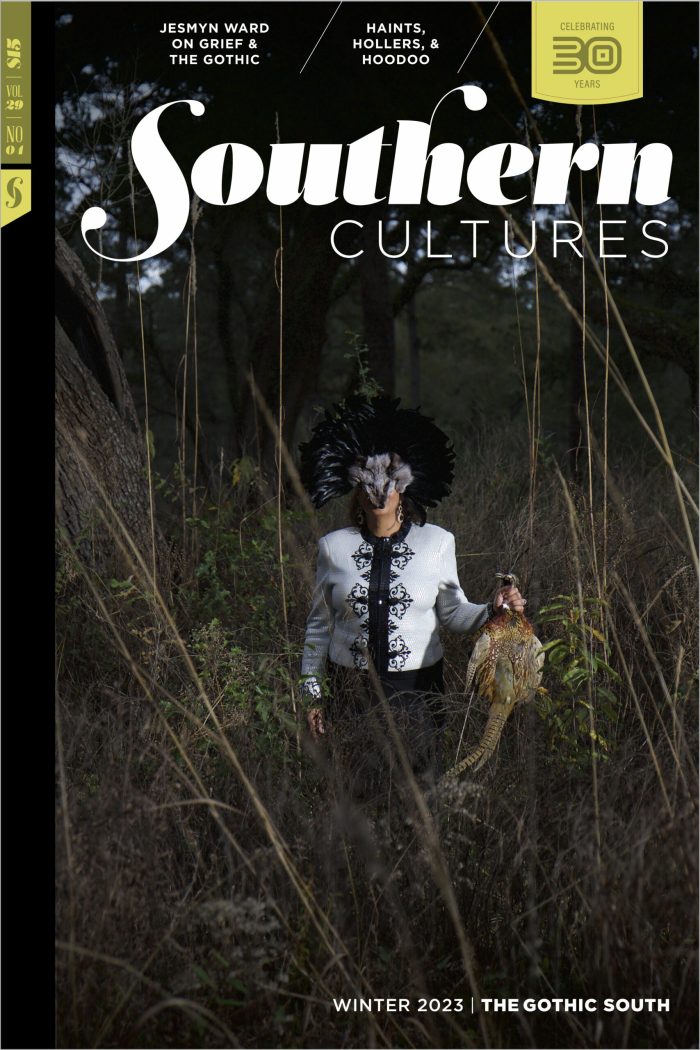by Harry L. Watson
“The most powerful memories of the Civil War continue to be the personal stories, and while the transmission may be sputtering today, they remain the most evocative, both of the winners’ frail victims and the losers’ human pain.” Readers who experienced the Civil War Centennial of 1961–65 may recall a pair of cartoons that circulated »
by Blain Roberts
“We started to wonder: did twenty-first century Charleston have separate—even segregated—tourism industries, one that focused on the city’s white history and another that told of its Black past?” I was so rushed that I could barely maintain my balance. The struggle to pull pantyhose over my tired feet, newly liberated from a pair of running »
by Steven E. Sodergren
“‘In the name of the future manhood of the south I protest. What are we to teach them? If we cannot teach them that their fathers were right, it follows that these Southern children must be taught that they were wrong.'” In the July 1900 edition of Confederate Veteran magazine, readers discovered that a “sensation” »
by Matthew P. Shelton
“I drilled until the book was lace.” The gaps between experience and history are filled with unauthorized cosmologies. Worldview. Origins of myth. While artifacts of war are found in pawnshops, artifacts of survival are found in cosmology. Through my work, I chart the southern imaginary—from the Culture Wars back to Reconstruction, from a Food Lion »
by Mark Canada
“‘The war is surging up close about us. – O . . . if I could put into your and every true woman’s heart the inexpressible loathing I have for it! If you could only see the other side enough to see the wrong the tyranny on both!'” The decades leading up to the Civil »
by Bland Simpson
“‘No war? I have come to you directly from Washington City, where the caissons are rolling, where a great army has been gathering, where Lincoln is planning for war. Whether you are or not.'” Bland Simpson’s Two Captains from Carolina tells the story of Moses Grandy (ca. 1791–ca. 1850) and John Newland Maffitt Jr. (1819–1886), »
by John M. Harris
“‘Let him who wishes to know what war is look at this series of illustrations. These wrecks of manhood thrown together in careless heaps or ranged in ghastly rows for burial were alive but yesterday.'” The Civil War was a little more than a year old in the first days of September 1862, and Confederate »
by Alyssa D. Warrick
“From the outset, Mississippi’s commission had a clear goal, evinced by its name. The Mississippi Commission on the War Between the States was unapologetically pro-Confederate, though willing to acknowledge, however begrudgingly, the Union victory.” On Tuesday, March 28, 1961, the overcast clouds above Jackson, Mississippi, parted just around ten o’clock in the morning. Shortly after, »
by Rachel F. Seidman,
Rob Stephens
“‘When my husband James was growing up, there was no race question. They assumed that was settled by the war. The Negroes were slaves and then they weren’t. That settled it.'” These oral history excerpts demonstrate the enduring influence the Civil War has had on southerners’ memories, family narratives, and even present-day self-perceptions. John Wesley »
Poetry
by Natasha Trethewey
Now that the salt of their blood Stiffens the saltier oblivion of the sea . . . —Allen Tate We leave Gulfport at noon; gulls overheadtrailing the boat—streamers, noisy fanfare—all the way to Ship Island. What we seefirst is the fort, its roof of grass, a lee—half reminder of the men who served there—a weathered »





